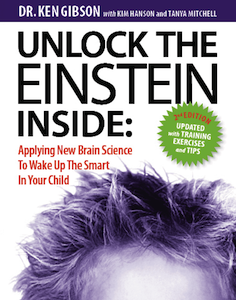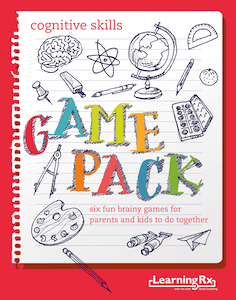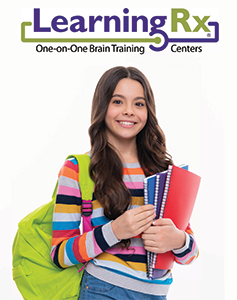Struggling-Learner Homeschooling Bundle
Specially selected resources for parents of struggling learners
For Children Who Need Extra Help
Special-Needs Homeschooling Bundle
Get the Whole Special-Needs Homeschooling Conference!
Do you have a child who
- struggles to learn?
- displays poor executive functioning skills? (disorganized, struggles to transition, etc.)
- has not received help in a traditional school setting?
- can’t seem to adapt to any curriculum you offer?
If your child has a learning disability or special need, you don’t necessarily need a degree in special education, and you definitely don’t need to feel like you’re alone in this. Help is available, and many parents of children with special needs teach their children at home.
You can find REAL SOLUTIONS.
Get the ENTIRE special-learner bundle + bonuses on MP3 for just $29.97
27 Downloadable MP3s on Teaching Struggling Learners
Recorded at the Virginia Homeschool Special-Needs Conference, these MP3s cover help for special learners on curriculum, nutrition, accommodations, planning, testing, and more!
Get the ENTIRE Struggling-Learner Bundle
Encouragement, Empathy, and Equipment all in one package!-
76% off the regular convention price!
-
17 full-session MP3s
-
10 BONUS MP3s (limited time!)
-
15-page FREE downloadable e-book
-
Resource List for Homeschool Parents
You Get ALL These Workshops:
Have you always wanted to improve your child’s ability to follow multiple-step instructions, read more fluently, or grasp those tricky math word problems? Have you wondered if there are things you can do as the teacher to improve your child’s progress? The field of neuroscience has given us an immense amount of information on how the brain learns, and it provides a roadmap of how to teach while considering brain function to optimize learning. Take away easy-to-implement actionable steps that are quick and affordable but can make a huge impact in your homeschool classroom.
Got a child who can’t sit still? A highly impulsive teen? A distracted or inattentive student? Change your homeschool to help your child improve his or her focus and nurture that wandering, creative mind. Veteran homeschooler and author Kathy Kuhl also discusses the related character issues, and how to teach if you’re distractible, too.
Learn how to diagnose and correct learning disabilities, or just mild processing glitches. This is for your “puzzling child.” Is it just a maturity issue, or is something else going on? If you have a bright, hardworking child who has to work too hard to learn, he is telling you that one or more of his four learning gates are blocked. You can easily pinpoint which of your child’s gates are blocked. Learn how to be your own diagnostician using a checklist of symptoms, and then learn the necessary interventions. This can be done by the parents at home. It doesn’t have to be so hard for your child! Find out specifically how the brain processes information, and where that processing can break down. You will learn things you have never heard of before in a homeschool workshop. A homeschooling mom with a Ph.D. in special education said that she learned more in this workshop about how kids learn and how to make learning easier, than she had in all her university courses!
The idea of homeschooling a child with special needs or learning struggles may seem overwhelming, but there is freedom when you understand that the requirements and red tape in the school systems do not apply to you. Not only can you provide consistent instruction using strategies that work for your children, but you can tailor their education based on their specific needs and interests.
At eleven, one of our boys was just learning to read; at fourteen he still struggled to spell three-letter words. Little did we know that he’d be reading ancient philosophers for fun at seventeen and that he’d go to college on a full academic scholarship! In this workshop, we’ll talk about how to help your struggling learners through high school (and give them a love of learning!), how to get accommodations on the SAT and ACT, and how to find out what help a college can give them—and you’ll be surprised just how much they can do! Our struggling learner graduated with honors and now has a successful career. Find out how!
While this workshop can support every parent’s instruction of a struggling student with varying levels of ability, it is especially for parents who have experienced drastic changes in special-needs services during the COVID-19 pandemic. This practical workshop will help parents understand the essential components of the homeschool version of the IEP. It’s called the Student Educational Plan, or SEP. Parents will learn how to incorporate the essential elements of a public-school IEP into a homeschool SEP. An SEP helps parents to clarify their understanding of the student’s strengths and weaknesses and to set priorities that address the most significant weaknesses. They then can write annual goals that are measurable and observable, and present clear standards to measure student success. Modifications and adaptations will be briefly addressed. Participants will receive a link to an online reproducible blank SEP document to create their child’s own educational plan.
Wish you understood your child’s difficulties better? Want to find strengths amidst problems? Do “labels” help? Join author and homeschool veteran Kathy Kuhl in exploring the process and benefits of diagnosing learning problems. Unravel your child’s learning puzzles!
Do you have a child whom you suspect has an auditory processing problem? Become your child’s own diagnostician as you identify, bypass, and correct auditory processing problems with your child at home. There are ten auditory channels. Some channels affect academics (reading, phonics and sight words, spelling, and math), while others affect everyday life (is easily confused, misunderstands verbal information or sequencing, is hearing own silent thinking voice, can’t think with background noise, has poor working memory, demonstrates speech delay or articulation issues). Learn to identify the exact auditory channels that are affected. Learn to bypass the auditory learning glitch by using your child’s natural photographic memory, and how to correct the auditory glitch by using the proven methods of brain integration therapy at home. Find out what common food can be contributing to your child’s articulation issues by causing him to hear sounds “like underwater.” MIT research shows that targeted nutritional interventions (such as using the correct amounts of essential fatty acids and a special supplement called lecithin) often greatly improve memory in children and adults.
Homeschooling children with learning difficulties can be hard for all parents, but especially if you yourself struggle with learning challenges such as dyslexia or ADHD. Most learning disabilities are hereditary, and so many parents find themselves teaching children with the same learning difficulties that they are challenged with themselves. The great news is that the field of neuroscience has taught us not only how to be better teachers with these issues, but also how to change and rewire the brain to overcome learning challenges, no matter the age of the child or the parent. Come learn about the amazing, malleable brain and how to harness neuroplasticity to help your child learn and reach their full potential.
Teaching a child with special needs requires flexibility and patience. When the parent understands their child’s learning strengths and struggles, they can modify their lessons to create an environment of learning. In this workshop, I will help you understand the learning strengths and struggles of some of the most common disabilities and give you tips and tricks you can use in your lessons to promote learning.
This workshop is Steve’s testimony of his last 30 years as the father of a child with special needs. He shares what his family has learned as a result of Johnny’s disability, and the special, rewarding, joyful role he has played in their lives. Even in the difficult experiences of life, God proved faithful. His grace sustained them and brought good out of their struggles and disappointments.
Disorganization, poor time management, and difficulty shifting gears are just a few of the symptoms of poor executive functioning (EF). EF skills are important throughout all stages of life. They are what enable us to develop leadership and time management and prioritization, along with allowing us to follow multi-step instructions, think critically, and adapt to change. We’ll build a solid understanding of—and cover how you can help your child develop—these important skills!
Do you have a child who seems to be “allergic” to a pencil? If you have a child who groans and fusses about writing, or still writes reversals, or spells a word orally correctly but leaves out letters when he writes, this workshop is for you! This child’s math papers are often hard to read because the numbers are lined up so poorly! These children are often thought of as sloppy, lazy, or unmotivated when they really have a writing glitch. They are using way too much energy for the writing process, so they are reluctant to put pencil to paper for anything. This often is a true dysgraphia. The writing learning gate is the most common gate that is blocked with gifted kids. They know so much, but just can’t get their thoughts down in writing because of this blocked learning gate.
Reading is the key that opens the door to an entire universe of learning. School can be overwhelming and frustrating at best, when a child is struggling to read. There is real hope for treating the root causes of reading difficulties and disabilities. We’ll help you understand what can go wrong in reading development and how to help your child overcome all types of reading difficulties through the latest research in neuroscience.
ADHD can be exhausting for the child and the parent… especially when that parent is also the teacher! Join us to learn everything you need to know about ADHD. We’ll cover symptoms, diagnosis, and research-based options for treatments that work!
Johnny is a constant motion machine. Tom cries in frustration over minor matters. Susie forgets what she has just learned. According to Dr. Sydney Walker, children tend to “act how they feel.” This fascinating workshop provides you with clues to your child’s brain/body chemistry. William Crook, MD, has found that over 85% of children who suffer with sensory processing disorders or attention or mood disorders when older, have experienced multiple ear infections as a young child. Untreated, these children often go on to have many hidden food allergies and asthma. It is easy to correct these imbalances at home and dramatically affect your child’s learning day. The testimonies that we receive from parents across the United States who are using these simple remedies with their children are amazing!
FREE for a limited time!
For a limited time, enjoy these FREE keynotes from the HEAV special-learners conference.
Listen now!
Critical Connnections: What Brain Science Tells Us
Listen now!
Survive and Thrive in Your Homeschool
Want more? Get the Entire Special-Learners Bundle!
For a limited time, you can download this select bundle of 27 downloadable MP3s (listen to them anywhere!) with spot-on messages and practical tips from our 2023 convention speakers. PLUS, if you purchase now, you’ll get 10 BONUS recordings and an e-book chock full of strategies for helping your outside-the-box learners.
BONUS! 10 More Special-Needs Conference Workshops
If you purchase now, you get 10 BONUS MP3s that cover help for special learners on curriculum, nutrition, accommodations, planning, testing, and more!
Your child struggles with some part of learning or perhaps has given up. How do you help them begin again? How do you establish wise goals? How will you tell when you’ve reached them? Learn how to work around areas of weakness, strengthen them, and adapt your curriculum. Get tips on how to keep your and your child going.
Did you know that in Virginia we have options for end-of-year testing? In this workshop, Sarah talks about the options and alternatives that Virginia allows for end-of-year assessments, as well as the accommodations that can be made for your child with special needs.
Many otherwise bright children struggle in their schoolwork each year or seem to be “smart in everything but school.” The American Optometric Association reports that at least 60% of these problem learners have undiagnosed vision problems that significantly affect their academic performance. Most startling, nearly all of these children have perfect eyesight. Dr. Westcott will discuss how visual development impacts learning and how to work around these visual problems in a home school setting.
Yes, you can use Charlotte Mason principles and methods with a special needs child. Sonya shares what she has learned from more than 15 years of teaching her daughter with autism, pervasive developmental delays, and language processing issues.
After diagnosing her youngest daughter with autism, Sonya found herself in a spiritual valley. Though your valley may look different, the giants she encountered there may seem eerily similar to your own. Learn what Scriptures the Lord used to help her overcome five giants in the valley: the giants named Fear, Faltering Faith, Uncertainty, Guilt, and Self-Pity.
Homeschooling can seem so simple. You did well in school and usually behaved well enough, so how hard can teaching be? Buy a whiteboard and dry-erase markers, hang a wall map and some posters in your dining room, and go to work. But then real life intervenes. Your wiggler and giggler can’t seem to settle; books and worksheets send your struggling reader into orbit; your otherwise complacent children raise the flag of revolt; and you find yourself face-planted before the Lord. What happens when your children don’t fit the mold?
Many children with autism display behaviors or “stims” that indicate visual problems, often despite 20/20 eyesight. Several of these are so characteristic that these behaviors are used to diagnose autism. Join Dr. Westcott for an informative discussion on visual development and effective treatments for these conditions.
Does your child have attention problems? Based on neuroscience research, Dr. Moore will reveal surprising facts about the ADHD brain that will help you better connect with and teach these often-challenging kids. Through fun activities that show how cognitive skills work together in thinking and learning and how weaknesses in these skills impact learning, parents can help their kids manage the big emotions associated with ADHD. Understand the differences between ADHD and neurotypical brains and get actionable tips to to help your child with ADHD or attention problems.
In this interactive workshop, Dr. Moore will introduce the concept of brain training for kids who are struggling to learn. This intervention has helped more than 101,000 children and adults with learning difficulties. Come learn how cognitive skills work together in thinking and learning, how weaknesses in these skills impact learning, and how brain training is a promising approach to remediating most learning struggles. Leave with a better understanding of what brain training is, how it works, and who it helps.
The diagnosis of ADHD can create more questions than it solves. Important research has found that undetected vision problems often elicit many similar signs. The eyes must effortlessly coordinate together to sustain the up-close demands of reading and writing. Children lacking these important visual skills often see clearly, but avoid near tasks after only a few minutes. How attention develops, and how to separate a treatable vision problem from true attention problems, are discussed.
LOOKING FOR NON-MEDICATED SOLUTIONS?
- Struggling to understand your child’s strengths?
- Tired of jumping from curriculum to curriculum?
- Still trying to catch up from lost opportunities?
Our special-needs conference sponsor offers REAL solutions for your family!
BONUS: FREE E-Book
When you purchase your bundle, you’ll get a free e-book with articles by some of the top influencers in the country on helping children with special needs, from health to curricula to practical tips!
Six Tips For Homeschooling Your Child with Special Needs
Adapting Curriculum for Your Child with Special Needs
The Effects of Omega-3 on Health, Behavior, and School

PLUS, YOU GET…
All these free resources, thanks to our friends at LearningRx.
LIMITED-TIME OFFER
From our Friends at LearningRx
Get a digital cognitive skills assessment FREE, courtesy of Virginia’s LearningRx centers. This 45-minute test measures cognitive skills like attention, memory, processing speed, auditory processing, and more to show you exactly WHY your child is struggling, no matter what you try. Registration closes on November 2 so sign up now to get your free tests!







